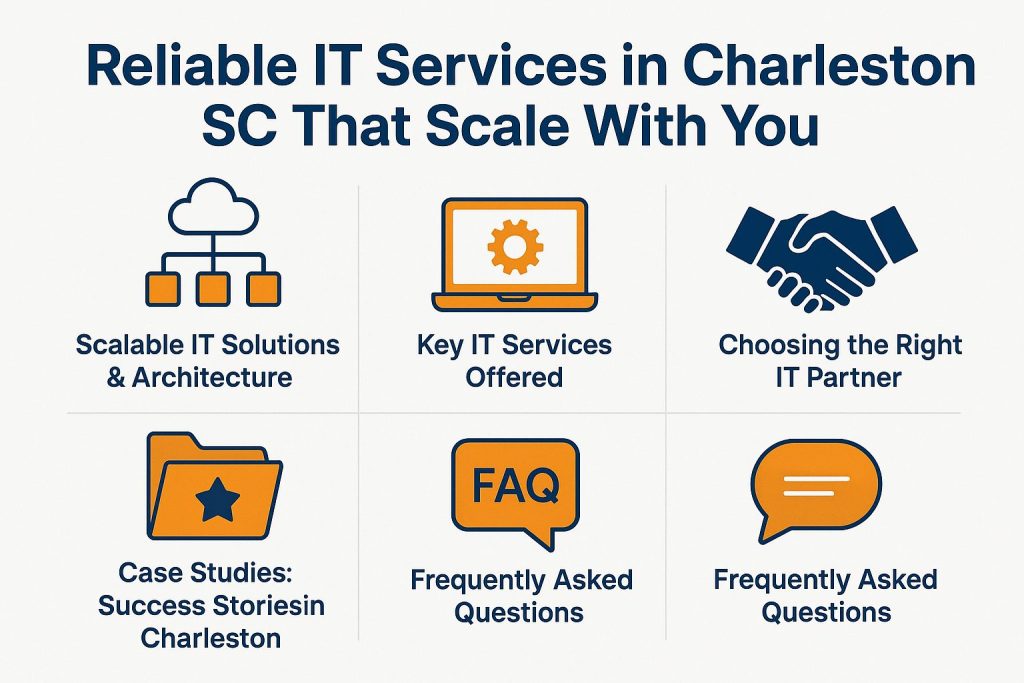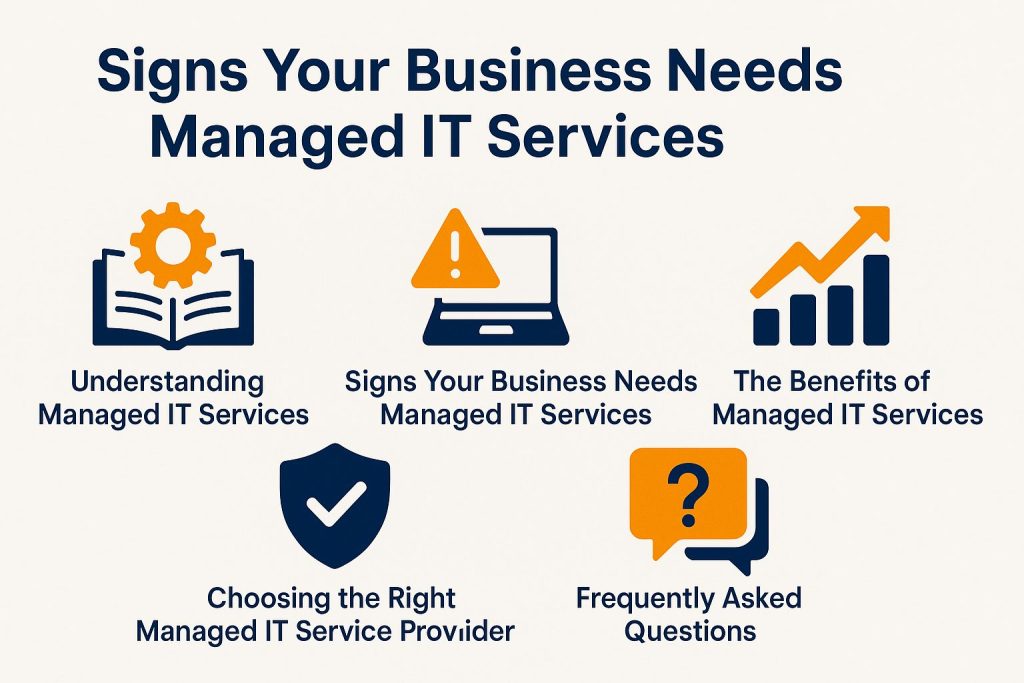How to Scale Managed Services With Your Business
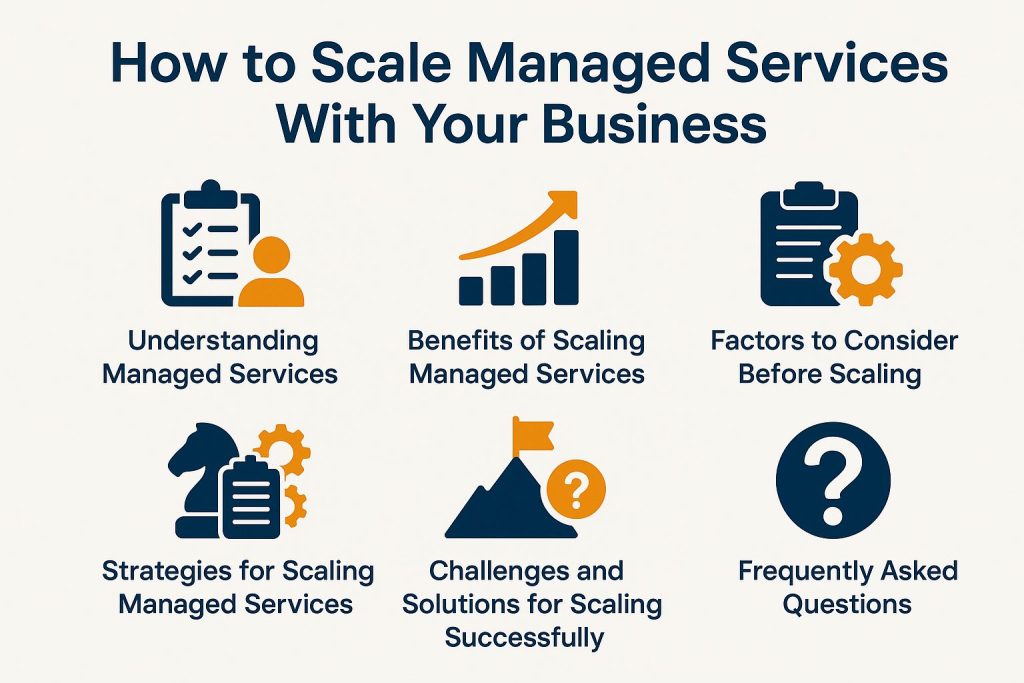
Today, managed services are essential for businesses. They help improve efficiency and control costs. This article gives an overview of managed services. It defines what they are and lists types. It discusses the benefits of scaling services. These include better efficiency and cost savings. It also covers important factors to consider before deciding. The article highlights strategies for scaling. These include outsourcing and automation. It also offers tips to overcome common challenges. It serves as a guide for organizations aiming to optimize managed services to foster business growth.
Understanding Managed Services
Managed services are a way to outsource IT management. They help businesses focus on their main goals and gain a competitive edge. This approach enhances customer satisfaction and business alignment.
Using a comprehensive service portfolio that includes cloud services and technology integration helps businesses improve efficiency and streamline service delivery.
Organizations must understand the types of managed services. Knowing these types helps optimize IT systems, improve efficiency, and support growth (our analysis of managed IT services ROI for Charleston businesses illustrates the potential benefits).
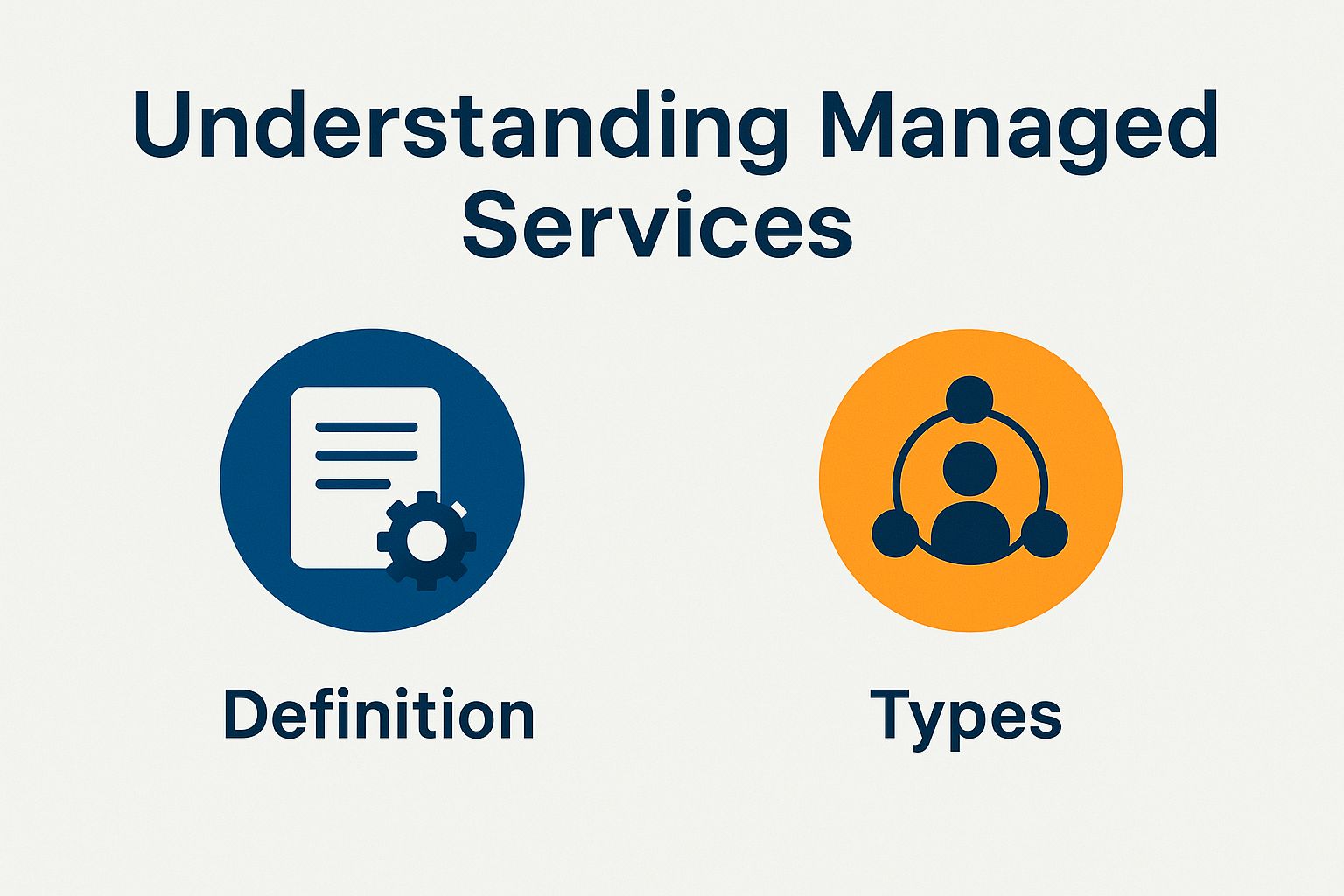
Definition and Types of Managed Services
Managed services refer to the practice of outsourcing the responsibility for maintaining and anticipating the needs of various processes and functions to enhance operations, ensure service reliability, and reduce expenses.
These services include various offerings. Examples are service desks for user support, cloud management for data storage, and vendor partnerships to enhance services.
Organizations can use tailored service-level agreements. These set clear expectations for performance and responsiveness. They help customize services to meet specific needs. This flexible approach enables companies to leverage specialized expertise while retaining control over essential operational elements, ultimately resulting in improved efficiency and decreased operational burdens.
Benefits of Scaling Managed Services
Scaling managed services has many advantages. It can boost business growth and efficiency. This helps organizations respond to market demands and client needs.
By adopting scalable solutions, businesses can improve client retention rates and profit margins while also achieving cost reductions through more efficient resource allocation, service automation, and workflow optimization.
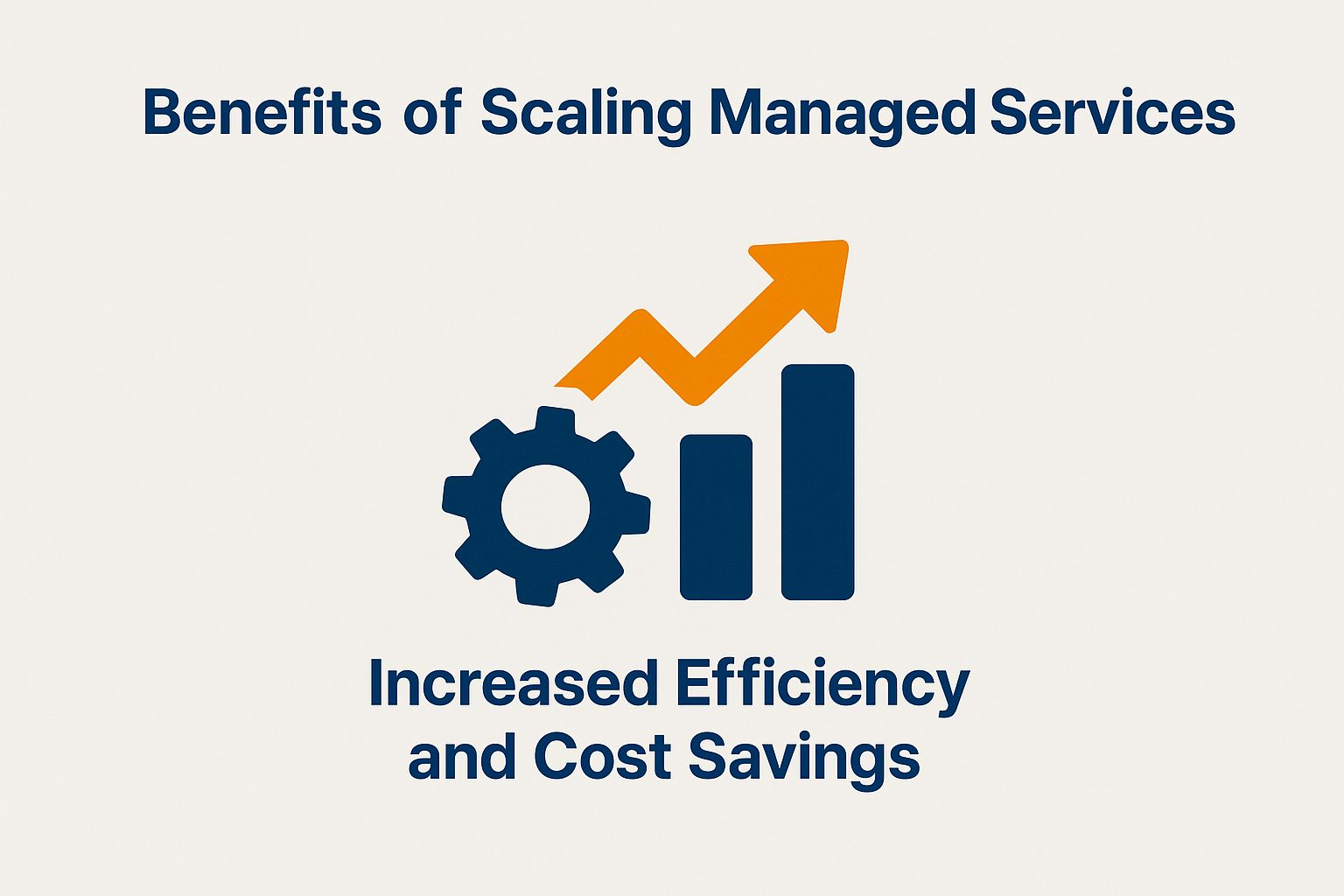
Increased Efficiency and Cost Savings
Increased operational efficiency stands out as a primary advantage of scaling managed services, allowing organizations to optimize processes while simultaneously reducing costs.
By leveraging key performance metrics, businesses can effectively track their progress and pinpoint areas for improvement, ultimately enhancing decision-making capabilities. This process involves implementing strategies for optimization that streamline workflows, eliminate redundancies, and improve overall productivity.
Service automation is integral to this transformation, as it enables teams to concentrate on more strategic initiatives while automated systems manage repetitive tasks. Through these efforts, organizations not only enhance their operational capabilities but also achieve significant cost savings, reinforcing the case for adopting managed services in today’s competitive environment.
Factors to Consider Before Scaling
Before scaling managed services, organizations must meticulously evaluate several critical factors that can influence their success, including a comprehensive client needs analysis and efficient resource management.
It is essential for them to develop a robust business strategy that addresses risk management and compliance regulations to ensure sustainable growth and effective service delivery.
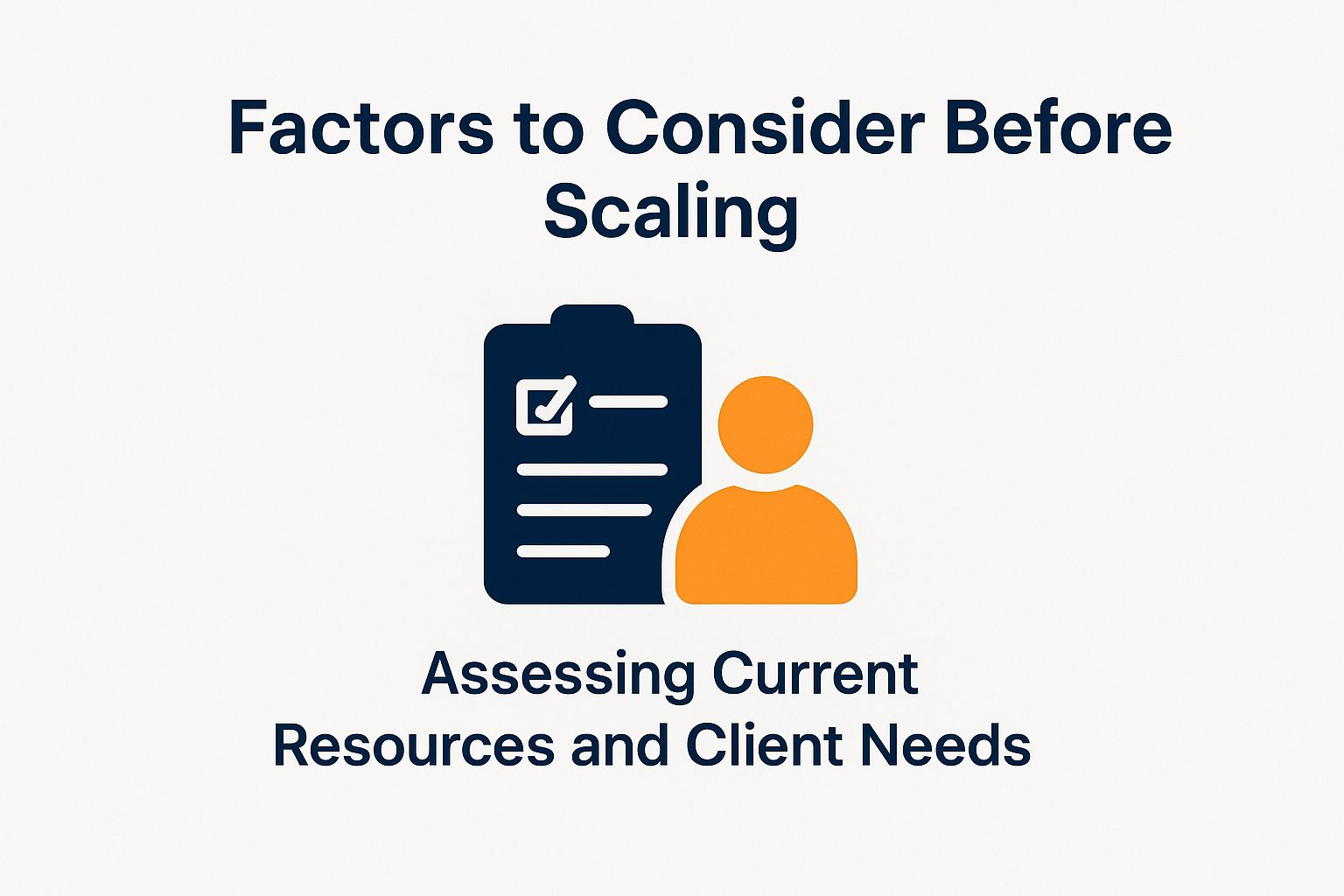
Assess Current Resources. Understand Client Needs.
These steps are vital for scaling managed services.
Examine client requirements closely. Tailor offerings to deliver the most value.
Use business intelligence tools. They help gather insights into client behavior and preferences. This informs strategic decisions.
Integrating performance metrics facilitates ongoing evaluation of both existing services and resources, ensuring alignment with client expectations and market dynamics.
This comprehensive approach helps management make informed choices that drive growth, improve client satisfaction, and support partnerships.
Effective Strategies for Scaling Managed Services
Effective strategies for scaling managed services include outsourcing, service automation, and modern technology. These improve operational scalability and optimize processes.
These approaches help organizations improve efficiency, adopt new technology, and adapt to changing market demands effectively.
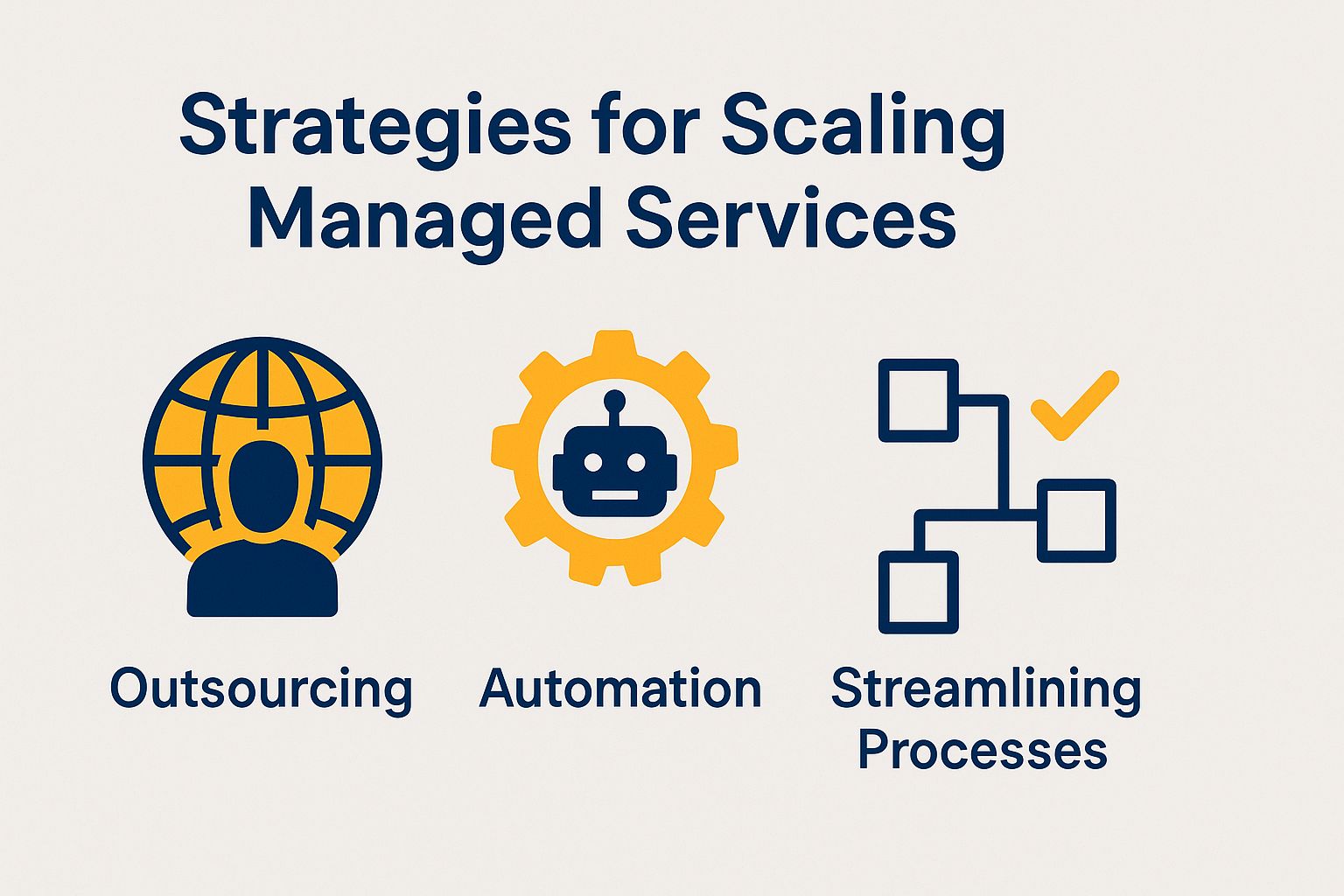
Outsourcing, Automation, and Streamlining Processes
Outsourcing and automation are key to streamlining processes. They greatly enhance operational efficiency.
These strategies not only reduce the workload on internal teams but also foster a more agile response to incident management. By leveraging external expertise and automated systems, organizations can ensure that their workflows operate seamlessly, minimizing downtime and improving service delivery.
Automation enables the swift identification and resolution of issues, facilitating effective incident management that is vital in today’s fast-paced business environment.
The integration of these methodologies not only cultivates a productive atmosphere but also paves the way for innovation, allowing companies to concentrate on their core functions while delegating routine tasks to specialized service providers.
Challenges and Solutions for Scaling Successfully
Scaling managed services involves various challenges that organizations must effectively navigate, especially in areas such as client communication, quality assurance, and change management.
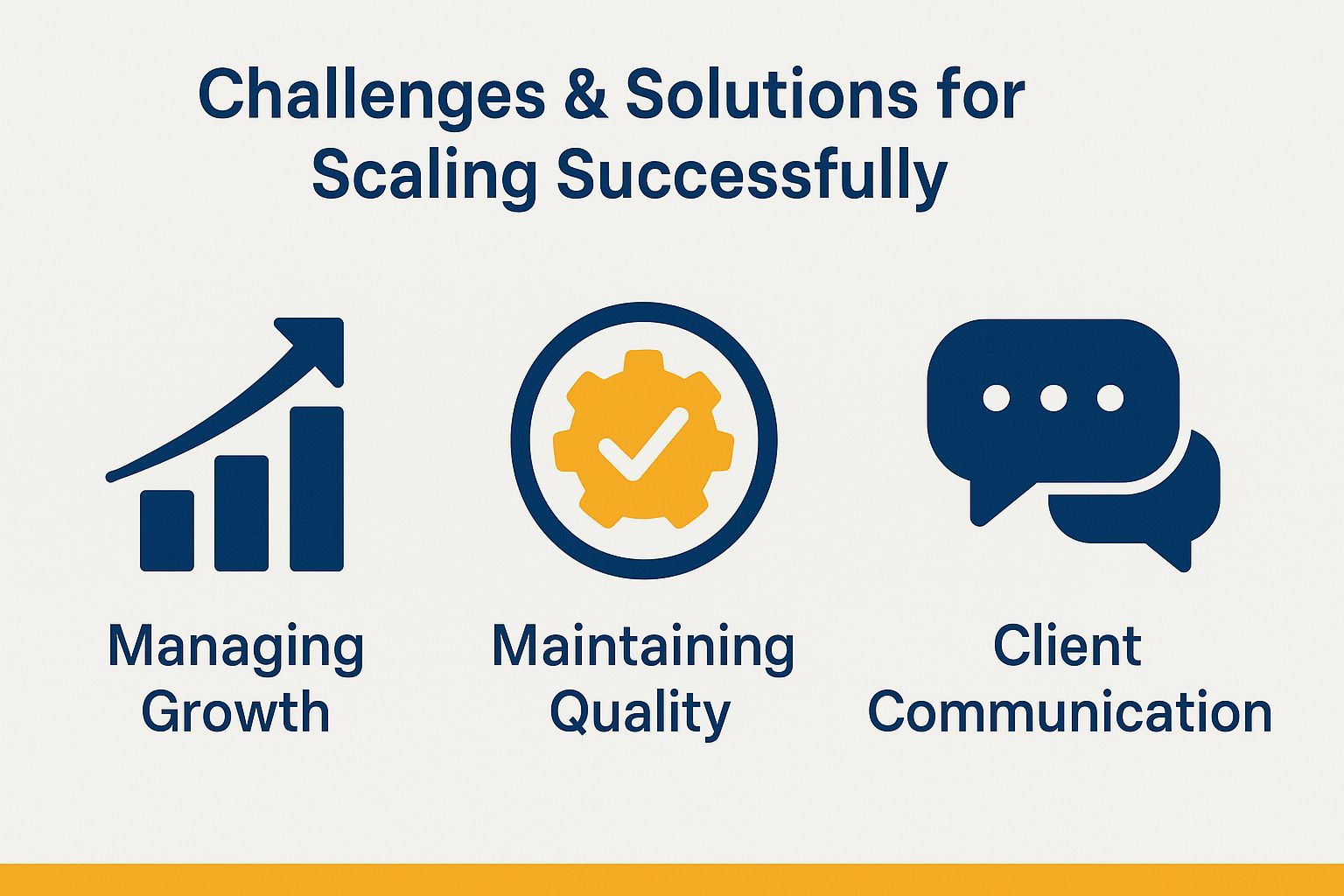
Managing Growth and Quality, Plus Client Communication
Effectively managing growth while maintaining service quality and ensuring proactive client communication is essential for the successful scaling of managed services.
Organizations must implement strong quality assurance processes. These enhance service consistency and build client trust. Establishing regular touchpoints with clients through feedback loops and progress updates strengthens relationships and ensures that their evolving needs are met.
Additionally, adopting incident management strategies that prioritize swift resolution and transparent communication can mitigate potential disruptions. By employing these techniques, businesses can create a resilient environment that embraces growth while reinforcing their commitment to client satisfaction and service excellence.
Frequently Asked Questions
What are managed services, and why should I consider scaling them with my business?
Managed services are when a third party handles IT tasks and responsibilities.
How do I determine if my business is ready to scale managed services?
Assess your current workload and capabilities. This helps you see if you are at your full potential. If you find yourself struggling to keep up with tasks or lacking resources, it may be time to consider scaling managed services.
What are some key factors to keep in mind when scaling managed services?
Consider your long-term goals, budget, and specific IT needs.
How can scaling managed services benefit my business?
Scaling managed services offers benefits like reduced costs, improved efficiency, increased flexibility, specialized expertise, and better risk management.
Can I still maintain control over my IT operations when scaling managed services?
Yes, you can maintain control over your IT operations. Clearly define your expectations and goals with the provider. Regular communication and monitoring can also help ensure your business needs are being met.
Are there any potential challenges to consider when scaling managed services?
Scaling managed services has benefits, but be aware of challenges. These include integration issues, communication gaps, and contract negotiations. Address these challenges proactively for a smooth transition.
